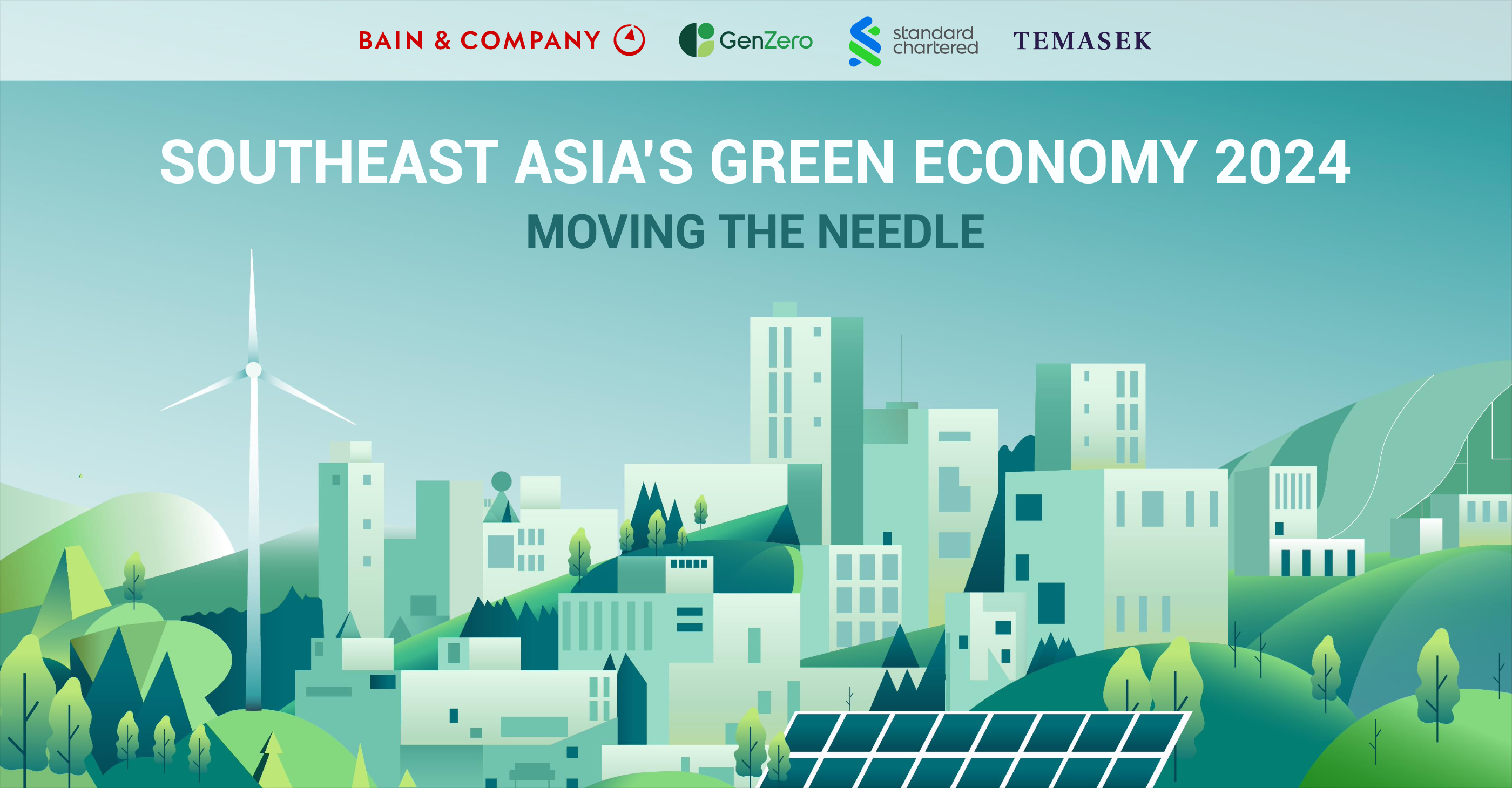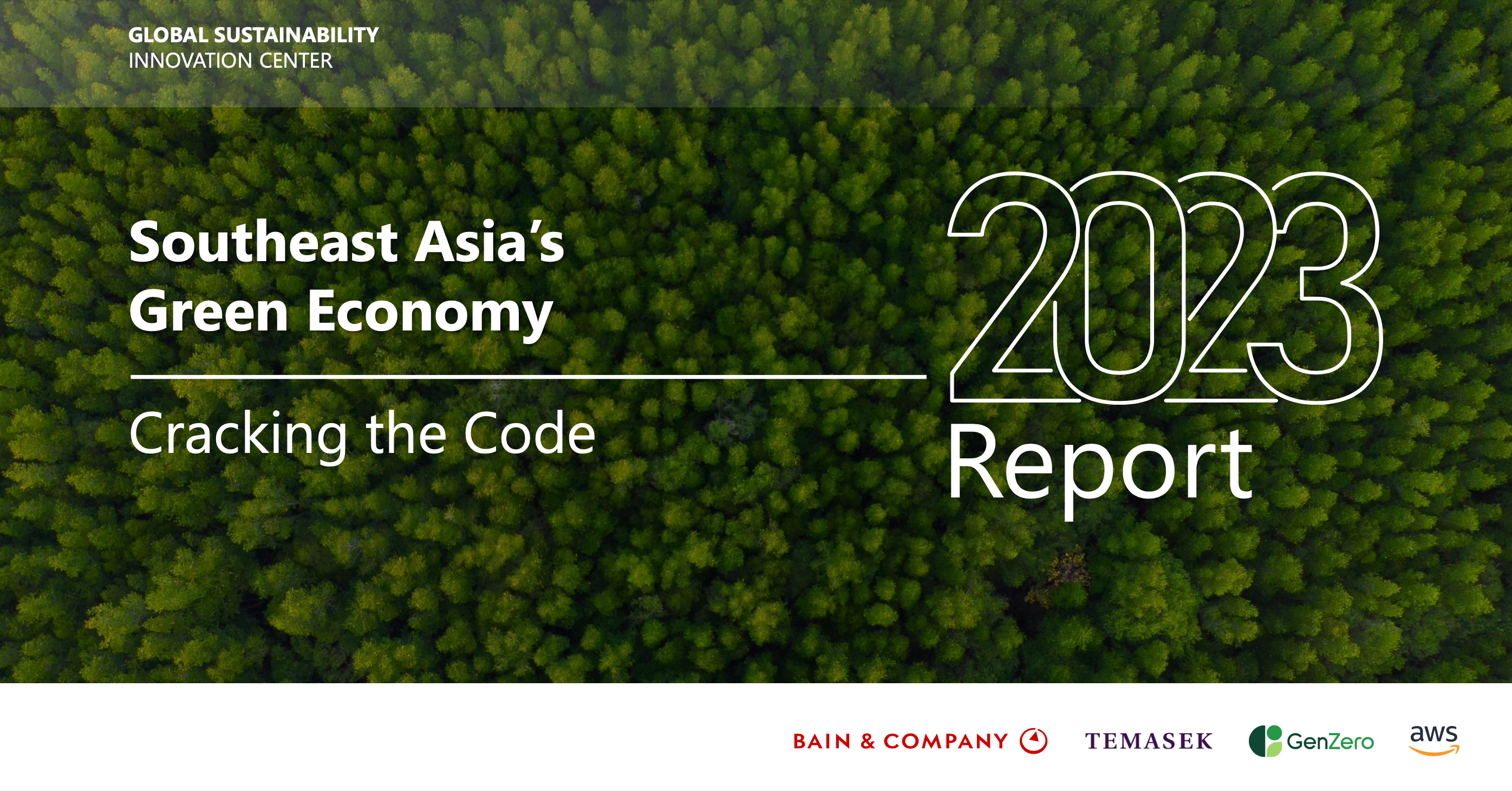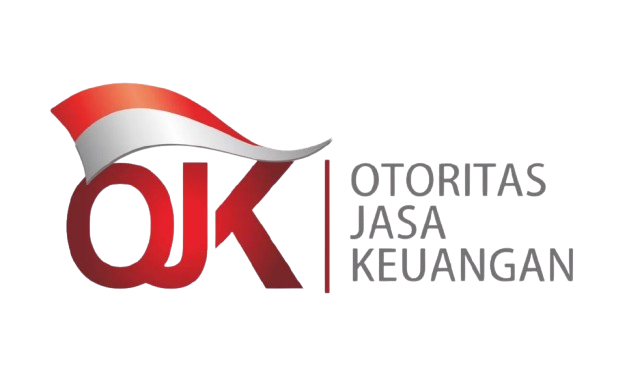Southeast Asia has a critical opportunity to leverage the green transition for competitive and economic growth beyond decarbonization. This report highlights immediate investable decarbonization opportunities and key accelerators to expedite progress. It features comprehensive deep dives and presents the top 13 investable ideas across four sectors: Nature and Agriculture, Power, Transport, and Buildings. Additionally, the report discusses five key accelerators that can support building ecosystems in the near term and scaling up investment.
Resources

Southeast Asia’s Green Economy 2024 Report
Published by


Southeast Asia’s Green Economy 2023 Report
Published by

The region has significant potential to expand renewable energy to meet its growing demand, though this potential varies across Southeast Asia. Governments must accelerate local market development, upgrade grids, and collaborate regionally to align power demand with capacity investments. Concurrently, efforts should be expedited to make nature conservation economically viable by employing market-based measures to value nature and its carbon potential. This report offers an in-depth overview of the Southeast Asia green economy, addressing key challenges and proposing mechanisms to advance climate progress in energy and nature to achieve 2030 goals.

Buku Taksonomi untuk Keuangan Berkelanjutan Indonesia
Published by


